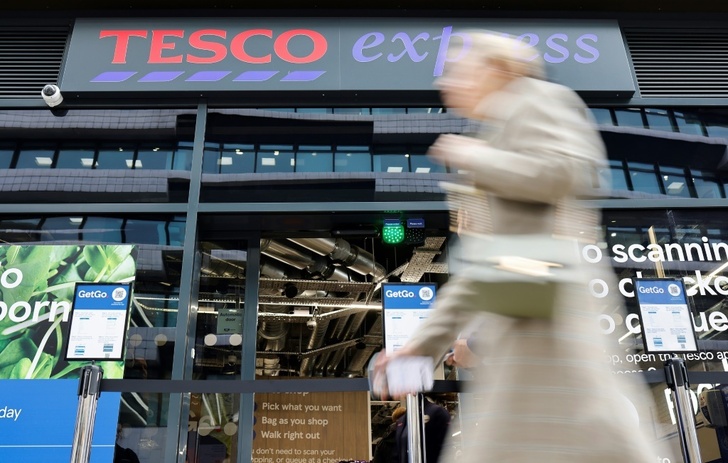Britain's biggest retailer, supermarket group Tesco, reported Thursday a halving of annual net profit as soaring inflation hiked costs and reduced the amount of goods sold.
Profit after tax slumped to £745 million ($930 million) in the 12 months to the end of February, Tesco said in a statement.
Chief executive Ken Murphy said the group experienced "unprecedented levels of inflation in the prices" it paid suppliers, and the cost of running its own operations.
The supermarket added that sales volumes dropped year-on-year.
This was offset by Tesco hiking prices of products, helping revenue jump seven percent to £65.8 billion.
- 'Painful grocery inflation' -
"Tesco has seen profits take a knock as inflation means struggling customers are picking up fewer items while prices soar," noted Sophie Lund-Yates, lead equity analyst at Hargreaves Lansdown.
"It's not lost on consumers that grocery inflation remains one of the most painful areas of overall rising costs at the moment."
In a bid to retain customers, Tesco is matching the prices of similar goods offered by UK supermarkets run by German discounters Aldi and Lidl.
Tesco on Thursday also announced that during its current financial year, the company would repurchase shares worth £750 million.
Tesco's share price climbed 1.8 percent to 272.20 pence following the updates.
"Since issuing a profit warning back in October the Tesco share price has gone from strength to strength, with the shares closing at eight-month highs earlier this week," said Michael Hewson, chief market analyst at CMC Markets UK.
"This is despite pressure on margins that have continued to come under pressure over the last 12 months from intense competition from the likes of Aldi and Lidl who have seen their own sales growth surge."
Tesco in January cut about 2,100 jobs in a bid to keep a lid on runaway costs, which include also pay rises for staff who have seen wages eroded by sky-high inflation.
Consumer prices surged worldwide last year, pulled higher especially by surging food and energy prices as Russia's invasion of Ukraine hit supplies.
Prices reached the highest levels in decades also as economies reopened from pandemic lockdowns.
British inflation remains elevated at above 10 percent after a jump in February, while official data Wednesday showed the rate of price increases slowing in the United States.
The UK economy unexpectedly stalled in February with the country facing more strikes amid a cost-of-living crisis, figures showed on Thursday.
Output had rebounded in January after the country narrowly avoided recession in the final quarter of 2022.
The UK government and Bank of England expect the country to dodge a recession this year, while the Federal Reserve has projected a "mild recession" in the United States.
bcp/rfj/lth
© Agence France-Presse
Your content is great. However, if any of the content contained herein violates any rights of yours, including those of copyright, please contact us immediately by e-mail at media[@]kissrpr.com.
Source: Story.KISSPR.com

